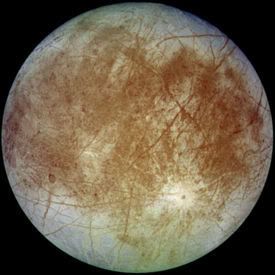 I Don't Think It's Pikachu?
I Don't Think It's Pikachu?
They say that the surface area of either Mars or the Moon is greater than that of the Land-surface of the Earth. Whether it is Mars or the Moon is of little consequence here, but it points out something - the Earth is much bigger than the  Moon or Mars in total surface area, but most of it is covered by the very thing we consider a prime requirement for life when we search for life out there in space.
Moon or Mars in total surface area, but most of it is covered by the very thing we consider a prime requirement for life when we search for life out there in space.
The life we know most about clings to the skin of the surface of the world - even considering the tallest of trees or life creeping the deepest into caves or the earth. There is a vast amount of the earth that lays beneath the surface of the ocean even if we only consider the surface area. But consider this - the ocean is deep and creatures of the deep can live throughout the entire volume of the ocean, not just the top surface or the bottom.
Here is a quote from a collection of images from the dark depths of the oceans. The passage comes from "Animals in the depths of the sea (26 photo) / Biology / Science ReaDigg.COM":
On dry land, most organisms are confined to the surface, or at most to altitudes of a hundred meters—the height of the tallest trees. In the oceans, though, living space has both vertical and horizontal dimensions: with an average depth of 3800 meters, the oceans offer 99% of the space on Earth where life can develop. And the deep sea, which has been immersed in total darkness since the dawn of time, occupies 85% of ocean space, forming the planet’s largest habitat. Yet these depths abound with mystery. The deep sea is mostly uncharted—only about 5 percent of the seafloor has been mapped with any reasonable degree of detail—and we know very little about the creatures that call it home. Current estimates about the number of species yet to be found vary between ten and thirty million. The deep sea no longer has anything to prove; it is without doubt Earth’s largest reservoir of life.
It does make me wonder about the thin skin of life living on the surface of the Earth and what the total effect of rising oceans might be.
True changes might effect the deepest depths, but there is so very much variation of life in the depths that much might be survived even as it has in the past through total globe encompassing ice ages. (Not the less all inclusive ones most people know about which mankind survived and which todays shrinking glaciers are remnants of.) Of course that doesn't help mankind too much other than knowing life might survive in some form or another on the Earth even if we leave this mortal coil.
The life in this light-less world is pretty incredible and barely within our wildest dreams. Some seem to nearly mimic some dreams... or  fiction in any case. Is it live or is it Pokemon? This one sure is reminiscent of
fiction in any case. Is it live or is it Pokemon? This one sure is reminiscent of  Pikiachu. (image to right - image from Wikipedia) The critter in the picture to the left is a "Dumbo Octopus" - Grimpoteuthis (image to the left - image from science.readigg.com) and can be found in that collection of photos that the quotation above was from. There are a whole bunch of images on that site... they count 26 in their page title. I chose one of the cuter ones.
Pikiachu. (image to right - image from Wikipedia) The critter in the picture to the left is a "Dumbo Octopus" - Grimpoteuthis (image to the left - image from science.readigg.com) and can be found in that collection of photos that the quotation above was from. There are a whole bunch of images on that site... they count 26 in their page title. I chose one of the cuter ones.
I do think we have to be better stewards of the environment and take care of our home, or our home might take care of us leaving others to come up from the depths to replenish the Earth. But I also think that with the weird and wonderful wildlife way below the waves we might have to really be careful on what we ascribe to habitable planets in our searches for life.
They say that at one time the earth - after life had developed already - had gone through an intense climatic change where there was runaway cooling and the whole of the surface of the earth was covered with a continuous sheet of ice. Yet, life survived in the oceans. The current theories are that  Europa, (image to right - image from Wikipedia) the sixth moon of Jupiter, might have a water ocean beneath its icy crust kept liquid by tidal heating. Perhaps it is not unlike the ocean under the ice of that icy Earth of one time.
Europa, (image to right - image from Wikipedia) the sixth moon of Jupiter, might have a water ocean beneath its icy crust kept liquid by tidal heating. Perhaps it is not unlike the ocean under the ice of that icy Earth of one time.
Of course life would have had to get its foothold and of course there would be less solar energy - though perhaps thermal and chemical energy might suffice... but it does leave room for thought and imagination.
Look at some of those undersea creatures of our own dark ocean environment and realize that even with our own technology we have hardly dabbled our toes into the depths. Look what we have seen so far and then use your imagination.
Later!
~ Darrell
70.
__________
Image of Moon used with permission from Image*After.


 Stumble It!
Stumble It!

No comments:
Post a Comment